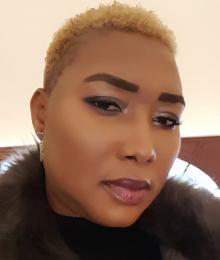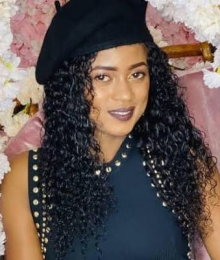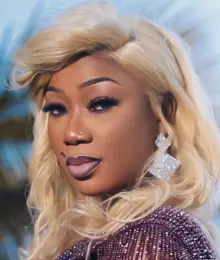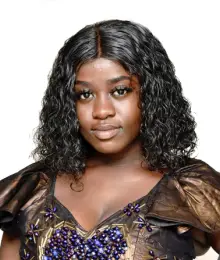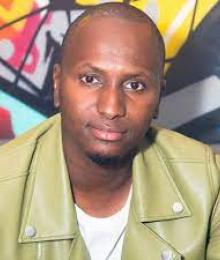
Lounceny Keita, also known as Louny, is a Guinean rapper who established himself as one of the leading figures in his country's hip-hop scene in the 2010s.
Originally from Conakry, he forged a modern style tinted with American influences after a passage through Canada. With his 2015 album "Le Visage de la Relève", Louny has become the spokesperson for a new generation of Guinean rappers, advocating more ego-trips and US-inspired rap sounds.
Despite an atypical career, he succeeded in establishing himself as one of the leaders of the rap scene in Guinea.
Introduction
Guinean rapper Lounceny Keita, better known as Louny, is one of the leading figures in African hip-hop. Originally from Conakry, the capital of Guinea, Louny made himself known on the Guinea rap scene in the 2000s with titles such as "Conakry my city".
After migrating to Canada to pursue his studies, he returned to the country to dedicate himself fully to his musical career. Author of several successful mixtapes, Louny released in 2015 his first studio album "Le Visage de la Relève", a manifesto for a new generation of Guinean rappers.
Featuring a powerful flow and illustrated texts, Louny imposes a modern style tinted with American influences. His success and status as Guinea's "richest rapper" made him a controversial figure, criticized for his bling-bling side but adored by young people.
Driven by a devastating ambition, Louny is determined to impose himself as one of the tenors of African rap.
Childhood and education
Lounceny Keita was born in Conakry, Guinea in the 1980s. He grew up in the popular neighborhoods of Cameroon and Nongo, crushed by American rap that began to spread in West Africa.
At the age of 14, he wrote his first lyrics and became passionate about pioneering Guinean rap bands such as Kil Point and Legitimate Defense. It was the beginning of his adventure with music.
In 2003, Lounceny left Guinea for Canada to pursue university studies in Montreal. He obtained a degree in communication and public relations.
Far from his home country, the young rapper is immersed in an enabling environment to refine his art. He is immersed in sounds coming from the United States, from the West Coast to the dirty south scene, as well as French rap.
Artists such as 2Pac, DMX, Booba or La Fouine inspire him to find his own style.
Early musical career
Returning to Conakry in 2009 after graduating, Lounceny Keita embarked on a serious musical career as Louny. In the same year, he released the title "Conakry ma cité" which met a certain success and made it known on the urban stage of Guinea.
It was followed by a series of mixtapes such as "Success or Death Vol.1" and "Code Régional 224" in which Louny affirms his style heavily influenced by US rap.
He also multiplied collaborations and featurings with other Guinean artists. His career took a turning point in 2012 when he was the guest of honor of the Guinea Urban Tour festival in Montreal, where he studied.
On stage in front of the Guinean diaspora audience, Louny impresses with its flow and scenic presence. From now on, he established himself as one of the rising figures of rap in Guinea alongside other newcomers such as Banlieuz'art.
Success
The success came in 2015 with the release of her first album "Le Visage de la Relève". Carried by singles such as "Doumbouya" and "Sekouba", the album hit the rap scene in Guinea and sold more than 3,000 copies.
Louny is the spokesperson for a new generation of rappers who want to give a younger blow to Guinean hip-hop. With his incisive and modern lyrics, his technical mastery and his US-inspired rap sounds, he conquers crowds, especially urban youth.
Some singles like "Faya Kombo" have millions of views on YouTube. Featurings with other rising stars such as Gazna and Ben-J confirm his status as a locomotive of the Guinea rap scene.
Career
Since its inception, Louny has multiplied collaborations with artists from the urban scene of Guinea. His appearances on the albums of Maty Dollar, Gazna and his featurings with Banlieuz'art can be cited.
On stage, he is the guest of many major events in Guinea and the diaspora: Miss Guinea Canada, Manifesto festival, concerts with La Fouine.
Louny is also the founder of his own label, 224 New School Music, a reference to Guinea's phone code. (224). Along with his real estate company, he also invested in real estate in Conakry.
Apart from music, Louny is an accomplished entrepreneur, at the head of several communications, construction and real estate rental companies.
Albums
- Success or Death Vol.1 (mixtape - 2009)
- Red Light Mixtape (mixtape - 2011)
- PNG Mixtape (mixtape - 2012)
- Regional Code 224 Mixtape (mixtape - 2012)
- The Face of the Relief (album - 2015)
- Sekou Touré (mixtape - 2018)
With his mixtapes and his first studio album, Louny established itself as one of the lance beams of the new rap scene in Guinea.
His productions reveal a talented artist as comfortable on trap instruments as well as on beats boom bap old school. His texts demonstrate a sharp pen and a remarkable sense of flow.
Conclusion
With its modern style inspired by US rap and strong personality, Louny symbolizes the emergence of a new generation of rappers in Guinea.
Despite an atypical journey between Conakry and Montreal, it succeeded in imposing itself in a few years as one of the lances of the Guinea hip-hop scene.
Adored by young people and rap enthusiasts, but criticized for his excessive bling-bling, Louny divides. But if heins the direction musically, there is no doubt that he can become one of the major representatives of African rap, in the image of a MHD in France.
With his determination and his raw talent, Louny has in any case proved that he has the potential to mark the history of Guinean hip-hop.











